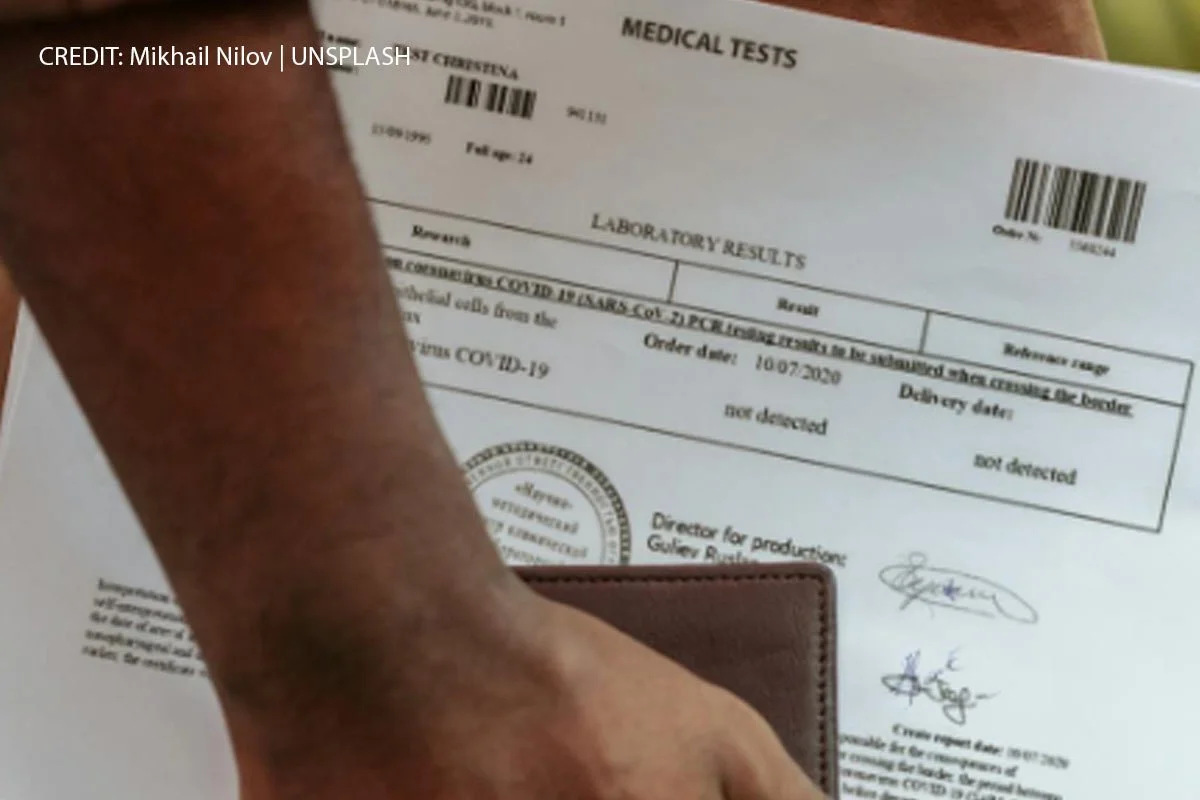Beyond the Bedside: Legal Responsibilities for Nurse Practitioners in Canada
The role of the Nurse Practitioner (NP) has become an integral and dynamic component of Canada’s healthcare mosaic. Functioning with a high degree of autonomy, NPs blend their advanced nursing knowledge with skills in medical diagnosis and treatment, providing comprehensive care across a variety of settings. This expanded role (which includes diagnosing illnesses, ordering and interpreting tests, and prescribing medications) grants NPs a level of authority that was once the exclusive domain of physicians. However, with this increased autonomy comes a significant and parallel expansion of legal responsibility. The legal framework governing NP practice is multifaceted, and one that extends far beyond the immediate clinical decisions made at the bedside. For NPs to practise safely, ethically, and effectively, it’s vital to possess a profound understanding of these legal obligations; it isn’t merely advisable, it is absolutely essential. These responsibilities form the bedrock of professional accountability, ensuring patient safety and upholding the public's trust in the profession. In this article, we’ll look into some of the core legal duties that define the modern Nurse Practitioner's practice.
1. Upholding the Scope of Practice and Standard of Care
The most fundamental legal responsibility for any Nurse Practitioner is ensuring they understand and practise strictly within their legislated scope of practice. In Canada, healthcare is a provincial and territorial jurisdiction, which means the specific activities an NP is legally permitted to perform are defined by the government and the nursing regulatory body in the province or territory where they are licensed. This scope delineates the boundaries of their authority (which covers everything from the types of conditions they can diagnose to the classes of medications they can prescribe and the procedures they can perform). Practising outside of this defined scope is not only a violation of professional regulations but can also constitute a breach of the law (which may lead to professional discipline and civil liability).
Complementing the scope of practice is the legal concept of the standard of care. This is the legal benchmark used to measure an NP's actions if they are ever called into question. Crucially, an NP is not held to the standard of a registered nurse or a family physician; they are held to the standard of a reasonably prudent and competent Nurse Practitioner with similar training and experience, facing similar circumstances. This means their clinical judgment, diagnostic acumen, and treatment plans will be evaluated against those of their peers across the country. Failure to meet this standard, resulting in harm to a patient, is the basis of a negligence claim. Therefore, NPs have a continuous legal duty to maintain their competence through ongoing education, staying current with evidence-based guidelines, and engaging in reflective practice to ensure the care they provide is consistently safe, competent, and defensible.
2. The Doctrine of Informed Consent
Informed consent is a cornerstone of Canadian healthcare law and a critical legal duty for every Nurse Practitioner. It is a process, not merely a form to be signed. At its core, it is about respecting a patient’s right to autonomy (i.e. their right to make decisions about their own body and medical care). For consent to be legally valid, it must be informed, voluntary, and the patient must have the capacity to give it. The NP has the legal obligation to facilitate this process by providing the patient with all the necessary information to make a reasoned decision (which also includes using plain, simple speech to ensure patients understand the issue without getting bogged down in medical jargon).
This includes a clear explanation of the proposed investigation or treatment, its potential benefits, and any material risks associated with it. Material risks are not just common or severe risks, but any risk that a reasonable person in the patient's position would want to know before making a decision. Furthermore, the NP must discuss viable alternative treatments (including the option of forgoing treatment altogether) as well as the likely consequences of each choice. The discussion must be free of coercion or undue influence (which ensures the patient's decision is truly their own). The NP must also assess the patient's capacity to understand this information and appreciate the consequences of their decision. If a patient is deemed incapable, the NP must adhere to provincial and territorial laws regarding substitute decision-makers. Failure to obtain informed consent before initiating treatment can lead to legal consequences, making this a high-stakes legal responsibility in every single patient encounter.
3. Meticulous Documentation and Record-Keeping
In the legal realm of healthcare, a prevailing principle is that "if it was not documented, it was not done." For Nurse Practitioners, this transforms documentation from a simple administrative task into a critical legal requirement. The patient's health record is a legal document that serves as the primary evidence of the care provided. It chronicles the NP’s assessment, diagnostic reasoning, treatment plan, communications with the patient and other providers, and the patient's response to care. In the event of a legal challenge, a regulatory college complaint, or a coroner's inquest, this record will be scrutinized intensely.
When it comes to keeping legally sound health records, the key is to be accurate, objective, comprehensive, and contemporaneous. This means entries should be made as soon as possible after the care is provided, free from personal bias or subjective speculation. They must be clear, legible, and use professionally accepted terminology and abbreviations. In an age of electronic health records, NPs must also be vigilant about the principles of digital record-keeping, ensuring data integrity, security, and proper use of templates or copy-paste functions, which can create legal vulnerabilities if used improperly. Meticulous documentation not only promotes continuity of care and patient safety but also serves as the NP's best defence, creating a clear and defensible account of their professional judgment and actions. Neglecting this duty can render an otherwise competent practitioner legally vulnerable.
4. The Duty of Privacy and Confidentiality
Protecting patient health information is a foundational legal and ethical duty. Nurse Practitioners are entrusted with some of a person’s most sensitive information, and they are legally bound to safeguard it. This duty is enshrined in various pieces of federal and provincial legislation, such as the federal Personal Information Protection and Electronic Documents Act (PIPEDA) and provincial health-specific privacy laws. These laws govern how personal health information can be collected, used, stored, and disclosed.
NPs must ensure that they only access information necessary for providing care and only share it with others within the "circle of care" (that is, other healthcare providers directly involved in that patient's treatment). Any disclosure of information outside this circle (without the patient's express consent) is a breach of confidentiality unless specifically required or permitted by law (e.g., mandatory reporting of certain communicable diseases or suspected child abuse). This duty extends to all forms of information, whether verbal, written, or electronic. NPs must be particularly cautious in the digital age, being mindful of the risks associated with email, social media, and mobile devices. Online statements deserve particular care, as those public statements may be counted as contentious. A breach of patient privacy can result in significant legal consequences, including civil lawsuits, fines, and severe professional sanctions from their regulatory body, causing irreparable damage to both the patient's trust and the NP's career.
5. Professional Regulation and Accountability
Finally, every Nurse Practitioner in Canada has a legal responsibility to be accountable to their profession and the public through a system of self-regulation. Each NP must be registered and maintain a licence with their provincial or territorial nursing regulatory body. These organizations are mandated by law to protect the public by setting entry-to-practice requirements, establishing standards of practice and professional ethics, and managing quality assurance programs.
NPs have a legal obligation to adhere to these standards and participate in the associated programs, which often include requirements for continuous learning and professional development, and so keeping track of programs for continuing education is a must for NPs to maintain their skills. They are also accountable for their actions and must cooperate with their regulatory body in the event of a public complaint or an investigation into their practice. This framework of accountability is what assures the public that NPs are safe, competent, and ethical practitioners. Part of this accountability involves recognizing the inherent risks of advanced practice and maintaining adequate professional liability protection, most commonly obtained through the Canadian Nurses Protective Society (CNPS). This protection provides legal support and liability coverage in the event of a lawsuit or complaint, but it is the NP’s proactive adherence to their legal and professional duties that serves as the first and most important line of defence. This overarching accountability ensures that the trust placed in Nurse Practitioners by the Canadian public is well-founded and diligently maintained.
Like any other position of responsibility, it’s incumbent for Nurse Practitioners to be aware of their duties to those in their care and to the profession; that responsibility is particularly essential for those in the medical field. With these reminders in hand, however, you’re in a better position to fulfill those responsibilities and ensure you offer your patients quality care at all times.
When you need a helping hand with legal issues, Health Law Firm has your back. We offer legal services for health care professionals to help you stay on top of matters legal. Whether it’s dealing with contract issues or managing workplace conflicts, we’re more than happy to deal with the issue and give you peace of mind. Call us now at (416) 640-0508 when you need legal help in your corner.


